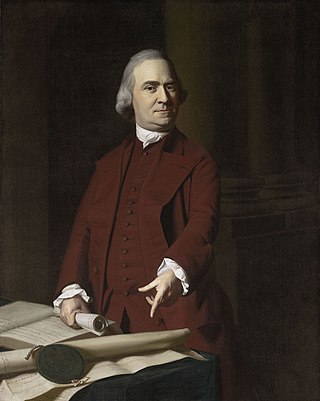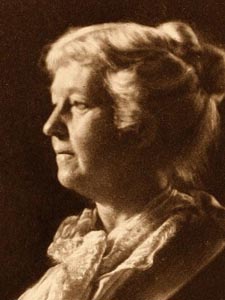Related Research Articles

Charles John Huffam Dickens was an English writer and social critic who created some of the world's best-known fictional characters and is regarded by many as the greatest novelist of the Victorian era. His works enjoyed unprecedented popularity during his lifetime and, by the 20th century, critics and scholars had recognised him as a literary genius. His novels and short stories are widely read today.

William Wilkie Collins was an English novelist and playwright known especially for The Woman in White (1859), a mystery novel and early "sensation novel", and for The Moonstone (1868), which, after Edgar Allan Poe's short story, Murders in the Rue Morgue, has been proposed as the first modern English detective novel.
A free lunch is the providing of a meal at no cost, usually as a sales enticement to attract customers and increase revenues from other business. It was once a common tradition in saloons and taverns in many places in the United States, with the phrase appearing in U.S. literature from about 1870 to the 1920s. These establishments included a "free" lunch, which varied from rudimentary to quite elaborate, with the purchase of at least one drink. These free lunches were typically worth far more than the price of a single drink. The saloon-keeper relied on the expectation that most customers would buy more than one drink, and that the practice would build patronage for other times of day.

Annie Adams Fields was an American writer. Among her writings are collections of poetry and essays as well as several memoirs and biographies of her literary acquaintances. She was also interested in philanthropic work, in which she found her greatest pleasure. Her later years were spent as a companion to author Sarah Orne Jewett.
A "Boston marriage" was, historically, the cohabitation of two wealthy women, independent of financial support from a man. The term is said to have been in use in New England in the late 19th/early 20th century. Some of these relationships were romantic in nature and might now be considered a lesbian relationship; others were not.

Mary Abigail Dodge was an American writer and essayist, who wrote under the pseudonym Gail Hamilton. Her writing is noted for its wit and promotion of equality of education and occupation for women. She was an abolitionist.
More than 1,500 African American officeholders served during the Reconstruction era (1865–1877) and in the years after Reconstruction before white supremacy, disenfranchisement, and the Democratic Party fully reasserted control in Southern states. Historian Canter Brown Jr. noted that in some states, such as Florida, the highest number of African Americans were elected or appointed to offices after the end of Reconstruction in 1877. The following is a partial list of notable African American officeholders from the end of the Civil War until before 1900. Dates listed are the year that a term states or the range of years served if multiple terms.

William Taylor Adams, pseudonym Oliver Optic, was an academic, author, and a member of the Massachusetts House of Representatives.

Anne Whitney was an American sculptor and poet. She made full-length and bust sculptures of prominent political and historical figures, and her works are in major museums in the United States. She received prestigious commissions for monuments. Two statues of Samuel Adams were made by Whitney and are located in Washington, D.C.'s National Statuary Hall Collection and in front of Faneuil Hall in Boston. She also created two monuments to Leif Erikson.
The bibliography of Charles Dickens (1812–1870) includes more than a dozen major novels, many short stories, several plays, several non-fiction books, and individual essays and articles. Dickens's novels were serialized initially in weekly or monthly magazines, then reprinted in standard book formats.

The Marshalsea (1373–1842) was a notorious prison in Southwark, just south of the River Thames. Although it housed a variety of prisoners—including men accused of crimes at sea and political figures charged with sedition—it became known, in particular, for its incarceration of the poorest of London's debtors. Over half the population of England's prisoners in the 18th century were in jail because of debt.

Samuel Adams was an American statesman, political philosopher, and a Founding Father of the United States. He was a politician in colonial Massachusetts, a leader of the movement that became the American Revolution, and one of the architects of the principles of American republicanism that shaped the political culture of the United States. He was a second cousin to his fellow Founding Father, President John Adams.

The Dickens family are the descendants of John Dickens, the father of the English novelist Charles Dickens. John Dickens was a clerk in the Royal Navy Pay Office and had eight children from his marriage to Elizabeth Barrow. Their second child and eldest son was Charles Dickens, whose descendants include the novelist Monica Dickens, the writer Lucinda Dickens Hawksley and the actors Harry Lloyd and Brian Forster.

The New England Women's Club of Boston, Massachusetts, was one of the two earliest women's clubs in the United States, having been founded a couple of months after Sorosis in New York City.
Every Saturday (1866–1874) was an American literary magazine published in Boston, Massachusetts. It was edited by Thomas Bailey Aldrich and published by Ticknor and Fields (1866–1868); Fields, Osgood, & Co. (mid-1868–1870); James R. Osgood & Co. (1871–1873); and H. O. Houghton & Co. (1874).

Madeline Yale Wynne was an American artist, teacher, writer, and philanthropist. She became the first President of Deerfield Society of Arts and Crafts, and a founding member of the Chicago Arts and Crafts Society.

Jane "Jennie" Collins (1828–1887) was an American labor reformer, humanitarian, and suffragist. Orphaned as a child, she supported herself at 14 by working in the cotton mills, and later as a domestic and a seamstress. She was active in the abolitionist and labor movements, volunteered in military hospitals during the Civil War, and founded a charity for poor working women in Boston. In 1870, at the invitation of Susan B. Anthony, she addressed the National Woman Suffrage Association convention in Washington. The following year, she became one of the first working-class women in the United States to publish a volume of her own writings: Nature's Aristocracy; Or, Battles and Wounds in Time of Peace. A Plea for the Oppressed.

Eagle House is a Grade II* listed building in Batheaston, Somerset, near Bath. Before World War I the house had extensive grounds.

Annie Nowlin Savery was an American suffragist and philanthropist based in Des Moines, Iowa. She is known as a pioneer feminist and activist for woman suffrage. She began taking part in the woman suffrage movement in the 1860s, and became a leader in the county and state, speaking widely and helping establish organizations to support it.
Manger Hotels was a major 20th-century national chain of luxury hotels, full service motor inns, and upscale motels. Originally founded in 1907 as a chain of luxury hotels by Julius and William Manger, the company shifted to extensive development of large strategically located motor inns and motels in the 1960s.
References
- 1 2 3 Rita K. Gollin (2002). Annie Adams Fields, Woman of Letters . Boston, Mass.: University of Massachusetts Press. ISBN 1558493131.: founded by Fields, p. 163; first in December 1870, p. 164; inspired by Dickens story, p. 164; three in Chicago, p. 164
- ↑ "Holly-Tree Inns. The System of Cheap Coffee Houses—what the Society of United Workers Propose to Do Here—Good Food at Reasonable Prices." Boston Daily Globe, December 14, 1872, p. 8
- ↑ Holly-Tree Coffee-house Movement in Brooklyn, April 18, 1874, p. 4; the particular effort they describe, however, seems to have failed.